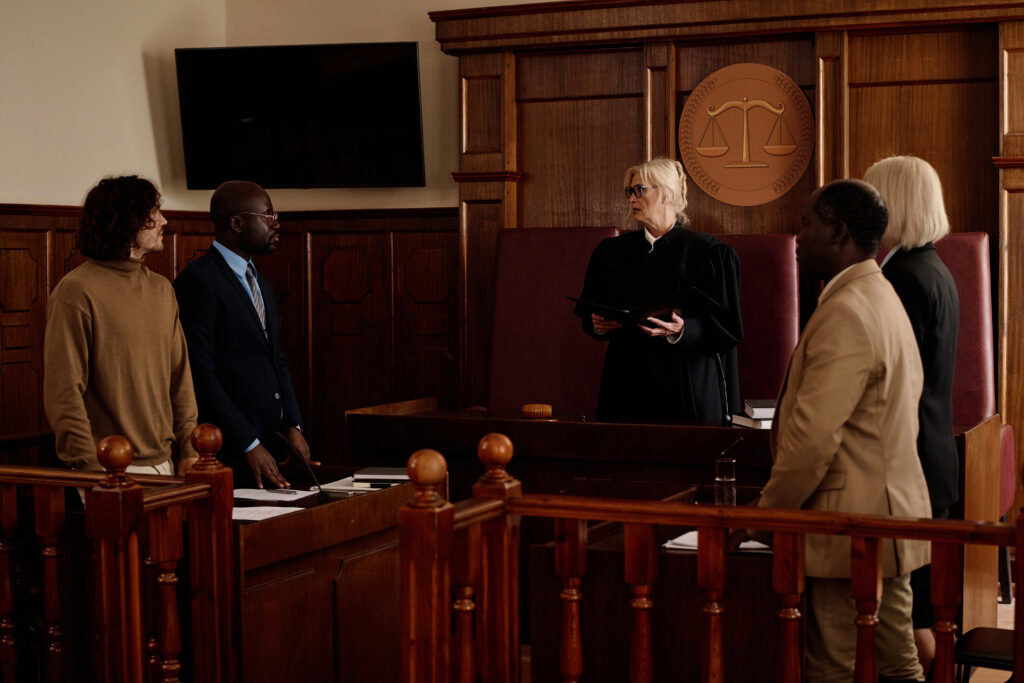If you or someone you love is facing criminal charges, the arraignment might feel like the first major step in what could be a long legal journey. It’s completely normal to wonder can charges be dropped at an arraignment hearing? The short answer is: yes, but it’s not common.
Understanding what the arraignment involves and what options might be available at that stage can help you prepare and feel more in control.
What Is an Arraignment?
An arraignment is typically the first formal court appearance after someone has been arrested and charged with a crime. It marks the beginning of the criminal court process. The main purpose of the arraignment is to inform the defendant of the charges filed against them and to allow them to enter a plea.
At this stage, the court does not determine guilt or innocence. Instead, it’s a procedural step where a judge will:
- Read the charges aloud (or summarize them)
- Advise the defendant of their rights
- Ask for a plea: guilty, not guilty, or no contest
- Address bail or release conditions
- Schedule future court dates
Depending on the jurisdiction and severity of the charges, the entire hearing may only take a few minutes.
The Arraignment Process
Although the specifics can vary by state, most arraignments follow a general pattern:
- Call to Order – The judge calls the case, and the defendant appears either in person or via video from jail.
- Reading of Charges – The charges are formally presented to the defendant.
- Plea Entry – The defendant enters their plea. In most felony cases, the plea is “not guilty” at this stage, even if a plea deal is expected later.
- Legal Representation – If the defendant doesn’t have an attorney, the court may appoint one.
- Bail or Release Decision – The judge decides whether the defendant will be released or held in custody while the case moves forward.
- Next Steps Scheduled – Pretrial dates, motion deadlines, and other case milestones are set.
It’s natural to hope this is also where charges might be dismissed or reduced.
Can Charges Be Dropped at an Arraignment?
Technically, yes. Charges can be dropped at an arraignment, but it’s unusual. The prosecutor has the authority to dismiss charges at any point, even before the arraignment takes place. However, by the time a case reaches arraignment, the state has usually already reviewed the evidence and decided there’s enough to move forward.
Charges may be dropped at arraignment in certain situations:
- Lack of evidence – If it becomes clear that the evidence is insufficient to support the charges.
- Procedural errors – For example, if the arrest was unlawful or critical rights were violated.
- Witness issues – If a key witness recants or is no longer willing to cooperate.
- Diversion programs – In some misdemeanor cases, the defendant might be offered an alternative to formal prosecution.
Still, most felony charges proceed past the arraignment unless something unusual has occurred. It’s far more common for negotiations, dismissals, or charge reductions to happen during pretrial hearings or plea discussions.
Factors That May Influence Whether Charges Are Dropped
Whether or not charges are dropped at an arraignment often depends on a combination of legal, procedural, and practical considerations. These include:
- Strength of the case – Weak or circumstantial evidence may prompt the prosecutor to reconsider.
- Legal motions – Your defense attorney may file motions to dismiss based on constitutional violations or procedural errors.
- Prosecutor’s discretion – The prosecutor can choose to pursue or drop charges based on new evidence, witness cooperation, or even broader policy goals.
- Victim input – While not decisive, a victim’s request not to proceed can influence a prosecutor’s decision, particularly in non-violent or domestic cases.
It’s important to have a qualified defense attorney involved as early as possible. They can evaluate whether there’s any realistic chance the charges could be challenged or dropped outright at this early stage.
What If Charges Aren’t Dropped?
If charges are not dropped during the arraignment, and again, they usually aren’t, the case moves forward. Here’s what typically comes next:
- Pretrial Hearings – The defense and prosecution exchange information, file motions, and continue investigating the case.
- Plea Negotiations – Many cases are resolved through plea bargains rather than going to trial. This can happen at any point after the arraignment.
- Trial Preparation – If no agreement is reached, the case heads to trial, where evidence is presented and witnesses are called.
- Status Conferences – The court periodically checks in on both sides to ensure the case is progressing.
So can charges be dropped at an arraignment hearing is a common question, it’s often the steps after arraignment where charges are reduced, dismissed, or resolved.
If you’re wondering can charges be changed after arraignment, the answer is yes. Prosecutors often amend charges as more information becomes available. A lesser charge might be substituted if the facts don’t support the original felony, or additional charges may be added if new evidence comes to light.
Can You Go to Jail at an Arraignment?
Yes, it’s possible to be taken into custody at the arraignment, especially if the crime is serious, or if the defendant is seen as a flight risk or a threat to public safety.
In deciding whether to set bail, release the defendant on personal recognizance, or hold them without bond, the judge considers factors like:
- The seriousness of the offense
- Prior criminal history
- Ties to the community
- Whether the person appeared for past court dates
- Risk to public safety
If you’re already in custody before the arraignment, the judge will determine whether to continue holding you or allow release pending trial.
Final Thoughts
The arraignment is a critical first step in the criminal justice process. While many defendants hope for immediate relief, it’s important to understand that can charges be dropped at an arraignment hearing is more often a “rarely, but possibly” situation. The process is designed to ensure due process and set the groundwork for what comes next and not necessarily to resolve the case immediately.
If you’re asking can charges be changed after arraignment, the answer is also yes. Cases evolve as investigations continue and new information emerges.
No matter your situation, having legal guidance early on is key. A knowledgeable defense attorney can help you understand your rights, evaluate your case’s strengths and weaknesses, and advocate for the best possible outcome whether that’s at arraignment or further down the line.










